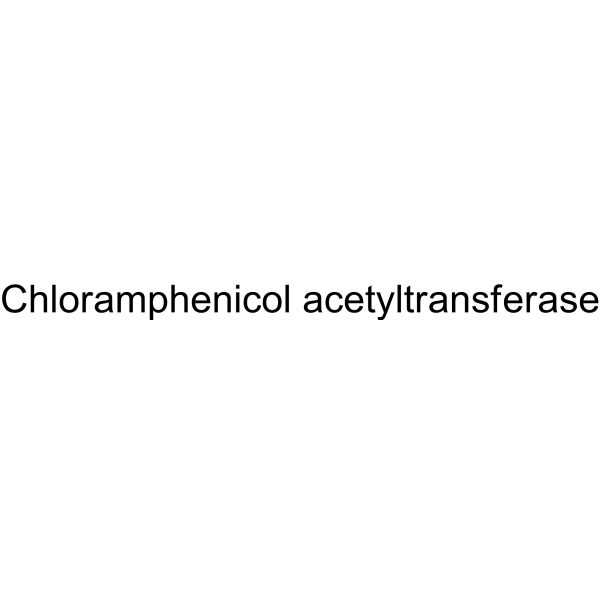Chloramphenicol acetyltransferase

Chloramphenicol acetyltransferase structure
|
Common Name | Chloramphenicol acetyltransferase | ||
|---|---|---|---|---|
| CAS Number | 9040-07-7 | Molecular Weight | 323.12938 | |
| Density | N/A | Boiling Point | N/A | |
| Molecular Formula | C11H12Cl2N2O5 | Melting Point | N/A | |
| MSDS | USA | Flash Point | N/A | |
Use of Chloramphenicol acetyltransferaseChloramphenicol acetyltransferase (CAT) is a biochemical reagent that can be used as a biological material or organic compound for life science related research. |
| Name | Chloramphenicol acetylase |
|---|
| Description | Chloramphenicol acetyltransferase (CAT) is a biochemical reagent that can be used as a biological material or organic compound for life science related research. |
|---|---|
| Related Catalog |
| Molecular Formula | C11H12Cl2N2O5 |
|---|---|
| Molecular Weight | 323.12938 |
| Personal Protective Equipment | Eyeshields;Gloves;type N95 (US);type P1 (EN143) respirator filter |
|---|---|
| RIDADR | NONH for all modes of transport |
|
Improving cell-free protein synthesis through genome engineering of Escherichia coli lacking release factor 1.
ChemBioChem. 16(5) , 844-53, (2015) Site-specific incorporation of non-standard amino acids (NSAAs) into proteins opens the way to novel biological insights and applications in biotechnology. Here, we describe the development of a high ... |
|
|
The innate growth bistability and fitness landscapes of antibiotic-resistant bacteria.
Science 342(6162) , 1237435, (2013) To predict the emergence of antibiotic resistance, quantitative relations must be established between the fitness of drug-resistant organisms and the molecular mechanisms conferring resistance. These ... |
|
|
Sigma factor RpoS controls alkylresorcinol synthesis through ArpR, a LysR-type regulatory protein, during encystment of Azotobacter vinelandii.
J. Bacteriol. 195(8) , 1834-44, (2013) Azotobacter vinelandii is a bacterium which undergoes a differentiation process leading to the formation of metabolically dormant cysts. During the encystment process, A. vinelandii produces alkylreso... |